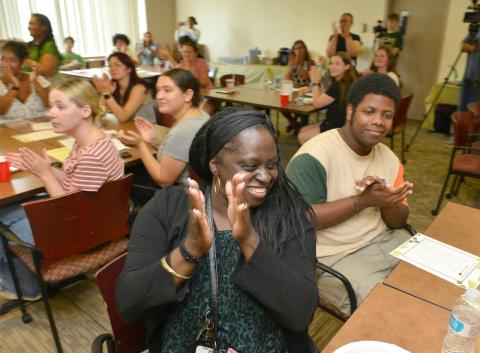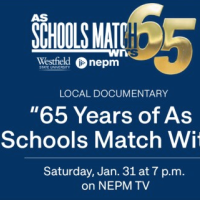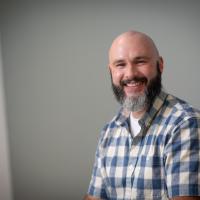
Inclement Weather Delay - Monday, Jan. 26, 2026
Due to inclement weather, WSU will be closed Monday, January 26, 2026. A campus parking ban will be in place beginning Saturday, January 24, at 6:00 p.m. See your WSU email for more info.
Westfield State, AIC, Elms College Education Departments Collaborate to Hold “Summer Learn and Earn” Program

Attendees enjoy the celebration at Elms College for the Western Mass. Literacy Collaborative. (Don Treeger / The Republican) 7/30/2024The Republican
Find and read this article on MassLive.
"A productive struggle.” That’s how one teacher describes the reach for greater literacy.
On Tuesday, young educators paused to reflect on the challenge.
Students at three Western Massachusetts colleges and universities who are studying to become education professionals celebrated the conclusion of this year’s “Summer Learn and Earn” program.
The program began last year and was spurred by Elms College’s Dr. Tyra Good, executive director of the Center for Equity in Urban Education.
The program places students from Elms College, American International College, and Westfield State University with young people in an effort to help both the student and the teacher learn more and develop their skills.
Last year, Good connected with AIC’s Sue Heinrich, the dean of students, and Carolyn Wallace, the associate dean, as well as Terri Griffin, a professor of education from Westfield State University. The women developed a partnership to boost literacy skills in the region through collaboration among higher education institutions.
The program places college-level students in classrooms in the Springfield Public Schools, Springfield Empowerment Zone Partnership and East Longmeadow Public Schools. There, the student teachers, who are called Literacy Intervention Teachers, work with elementary and middle school students.
Yesenia Gorham attends Elms and is one of the 36 LITs in the program. Gorham became a teacher five years ago after deciding it was time for a change, after working as a hospital administrator for Baystate. While she was pursuing her master’s of public health, she noticed that education and health were strongly connected.
“In all the research that had to do with the health of communities, one of the factors that they always identified in the research was education and education levels,” Gorham said. “The way I saw it is that if I was going to make an exponential impact in the lives of the people in my community, I needed to teach their children in science.”
This summer, Gorham was teaching incoming 6th grade students at Kiley Middle School in Springfield. She said though it has hard to see skills improvements in just four weeks, she’s noticed a shift in how her students approach reading.
“I think that the greatest thing I watched the kids do was growing their confidence so that when it was their turn to read, they did it confidently, even if they got stuck and they didn’t give up,” Gorham said.
“When a kid is confident in their ability to do the work, then you see a productive struggle and you see a commitment to sitting with the discomfort of maybe not being so perfect all the time,” she said.
Gorham is looking forward to returning to her role as a science teacher for 8th graders and will be implementing some of the literacy strategies she’s learned this summer to help them with reading non-fiction.
All 36 LITs involved in the program are majoring in education with the goal of becoming licensed educators. Teaching literacy over the summer provides the students with experience in an authentic classroom setting.
Before they begin, the LITs undergo a week of intensive training that includes culturally responsive teaching practices.
Laura Porter, who is part of the Western Massachusetts Literacy Collective and the “Summer Learn to Earn” project director, said the training helps LITs become acclimated to the schools. It prepares them to teach students from a variety of backgrounds. That involves understanding what the young students bring to the classroom — and connecting with them.
“So that we can really get past our own biases and really see that all of us are capable of learning literacy skills,” Porter said. “Then they’re out into the schools where they learn those particular curriculums for a day to learn what they would be doing when they’re working during summer school.”
Good said she hopes the program builds on its momentum from the past two years and shows the world what can happen when people work together.
“This is not about supporting one particular school district or one college and university over another,” she said.
“It’s about a transformative change for a whole region,” Good said. “Our ultimate goal, our vision, is to be on CNN for ‘CNN Heroes’ as we talk about how we work across district lines, university lines, cut through silos to come together as a region to represent the state of Massachusetts in improving literacy skills.”
-- James Foster / Special to The Republican


